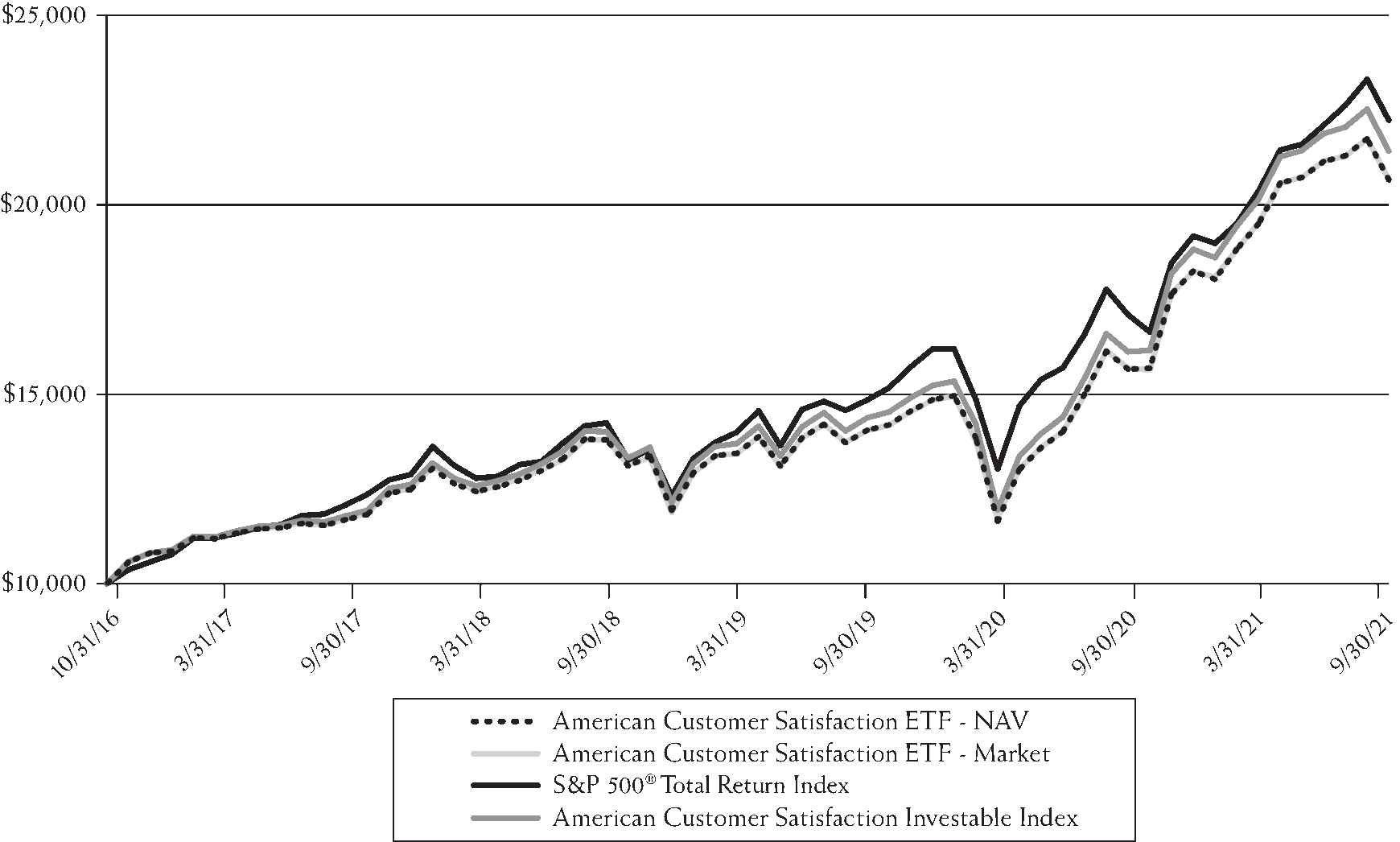(discount) due to supply and demand of shares or during periods of market volatility. This risk is heightened in times of market volatility, periods of steep market declines, and periods when there is limited trading activity for shares in the secondary market, in which case such premiums or discounts may be significant.
•Trading. Although shares are listed for trading on Cboe BZX Exchange, Inc. (the “Exchange”) and may be traded on U.S. exchanges other than the Exchange, there can be no assurance that shares will trade with any volume, or at all, on any stock exchange. In stressed market conditions, the liquidity of shares may begin to mirror the liquidity of the Fund’s underlying portfolio holdings, which can be significantly less liquid than shares.
C.Models and Data Risk. The composition of the Index is heavily dependent on proprietary quantitative models as well as information and data supplied by third parties (“Models and Data”). When Models and Data prove to be incorrect or incomplete, any decisions made in reliance thereon may lead to securities being included in or excluded from the Index that would have been excluded or included had the Models and Data been correct and complete. If the composition of the Index reflects such errors, the Fund’s portfolio can be expected to reflect the errors, too.
D.Sector Risk. To the extent the Fund invests more heavily in particular sectors of the economy, its performance will be especially sensitive to developments that significantly affect those sectors.
•Consumer Discretionary Sector Risk. The Fund is generally expected to invest significantly in companies in the consumer discretionary sector, and therefore the performance of the Fund could be negatively impacted by events affecting this sector. The success of consumer product manufacturers and retailers is tied closely to the performance of domestic and international economies, interest rates, exchange rates, competition, consumer confidence, changes in demographics and consumer preferences. Companies in the consumer discretionary sector depend heavily on disposable household income and consumer spending, and may be strongly affected by social trends and marketing campaigns. These companies may be subject to severe competition, which may have an adverse impact on their profitability. As of September 30, 2021, 28.5% of the Fund’s net assets were invested in the consumer discretionary sector.
•Consumer Staples Sector Risk. The Fund may invest in companies in the consumer staples sector, and therefore the performance of the Fund could be negatively impacted by events affecting this sector. Companies in the consumer staples sector, including those in the food and beverage industries, may be affected by general economic conditions, commodity production and pricing, consumer confidence and spending, consumer preferences, interest rates, product cycles, marketing campaigns, competition, and government regulations.
•Information Technology Sector Risk. Market or economic factors impacting information technology companies and companies that rely heavily on technological advances could have a significant effect on the value of the Fund’s investments. The value of stocks of information technology companies and companies that rely heavily on technology is particularly vulnerable to rapid changes in technology product cycles, rapid product obsolescence, government regulation and competition, both domestically and internationally, including competition from foreign competitors with lower production costs. Stocks of information technology companies and companies that rely heavily on technology, especially those of smaller, less-seasoned companies, tend to be more volatile than the overall market. Information technology companies are heavily dependent on patent and intellectual property rights, the loss or impairment of which may adversely affect profitability.
|
NOTE 4 – COMMITMENTS AND OTHER RELATED PARTY TRANSACTIONS |
Toroso Investments, LLC (the “Adviser”) serves as investment adviser to the Fund pursuant to an investment advisory agreement between the Adviser and the Trust, on behalf of the Fund (the “Advisory Agreement”), and, pursuant to the Advisory Agreement, has overall responsibility for the general management and administration of the Fund, subject to the direction and control of the Board. The Adviser is also responsible for trading portfolio securities on behalf of the Fund, including selecting broker-dealers to execute purchase and sales transactions, subject to the supervision of the Board. Prior to the Reorganization, CSat Investment Advisory, L.P., doing business as Exponential ETFs, served as investment advisor to the Predecessor Fund.
Pursuant to the Advisory Agreement, the Fund pays the Adviser a unitary management fee (the “Management Fee”) based on the average daily net assets of the Fund at the annualized rate of 0.65%. Out of the Management Fee, the Adviser is obligated to pay or arrange for the payment of substantially all expenses of the Fund, including the cost of transfer agency, custody, fund administration, and all other related services necessary for the Fund to operate. Under the Advisory Agreement, the Adviser has agreed to pay all expenses incurred



